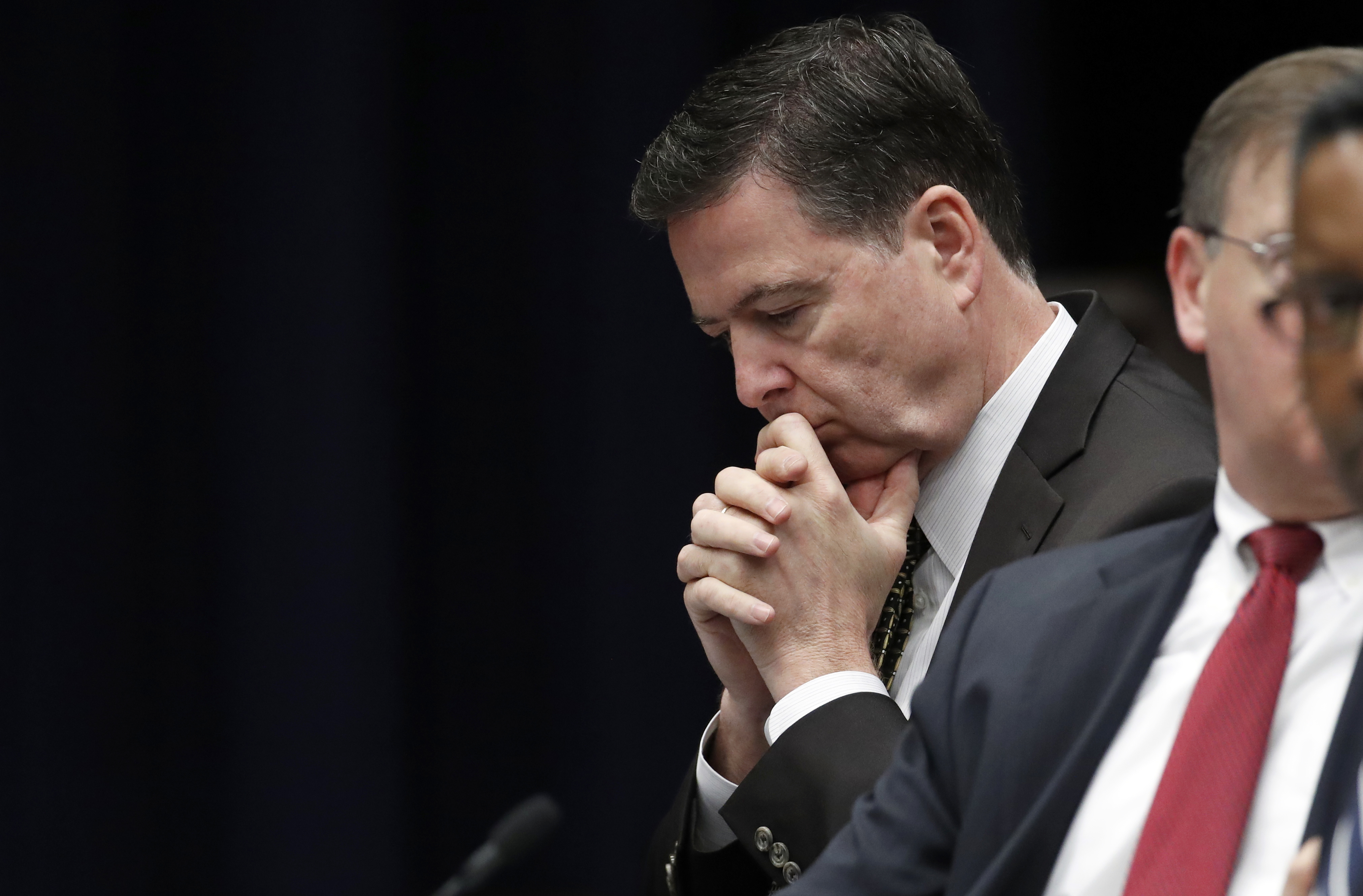President Donald Trump’s shocking decision to fire the FBI director, James Comey, on Tuesday set off one of the most tumultuous weeks in his young administration. Critics on both sides of the aisle blasted the president for firing the man who was overseeing an investigation into whether he or his associates colluded with Russia to meddle in the 2016 presidential election.
But Trump’s most dedicated supporters see things a little differently. To them, Trump’s decision to fire Comey was a welcome sign of a democratically elected president striking back at the American “deep state” – a theory asserting that there is a shadow network of government officials, politicians, and intelligence agents who are covertly working to undermine Trump’s agenda and ultimately overthrow him.
Though there is no credible evidence of an American deep state, talks of it have been widespread on far-right news outlets like InfoWars and Breitbart. They’ve also found a home among Fox News host Sean Hannity, former House Speaker Newt Gingrich, and Rep. Steve King of Iowa.
As evidence of their theory, supporters of the idea of an American deep state often point to leaks of classified information, saying members of the intelligence community are working with the “mainstream media” to take Trump down and install a new leader.
As a result, intelligence agencies such as the CIA, the NSA, and the FBI are often the targets of Trump supporters' ire. To them, Comey's firing represented not a move that Trump himself had seemed to concede was at least in part politically motivated, but a critical strike against a growing deep state.

This reaction from Trump's most stalwart supporters isn't all that surprising, according to Glenn Carle, a national-security expert who is a former CIA clandestine-services officer.
"It's likely Trump supporters who believe in an American deep state will view Comey's firing as the president pushing back at an intelligence community working to undermine him," Carle told Business Insider.
"In their mind, they don't see [Comey's] firing as the president, yet again, undermining the independence of democratic institutions," Carle added. "They see it as the opposite - as Trump fighting back against these supposedly secret efforts to undermine him."
Right-wing media cheer Comey firing
InfoWars founder Alex Jones said as much during his Wednesday broadcast.
"Comey was compromised and had been compromised for a long time," Jones told his millions of followers. "And was being clearly manipulated by deep-state sources to try to exert pressure onto the White House to have the White House carry out the deep state's political aims with this whole fake Russia narrative, that if they didn't basically do what John McCain and others wanted, they would continue on with hearings and try to impeach the president."
"Deep State Pushes Coup Against Trump Over Comey Firing," blared an InfoWars headline after Comey's ouster. The article said the deep state was using Comey's firing as the "casus belli" to overthrow Trump.
"This is the first step in President Trump draining the deep-state swamp," Hannity said in his opening monologue Tuesday night, just hours after Trump fired Comey. "James Comey, the former FBI director, is a national embarrassment. Frankly, he's very lucky President Trump kept him around this long."
The theory enjoyed widespread among Trump's base of support. "Firing Comey was a brave decision, a deep blow to the deep state," one person commented on a Breitbart article. That line of thought also picked up steam on Twitter:
https://twitter.com/Zaverdeez/status/862865574975729664
Trump firing Comey is white pilling simply for the fact that he's finally making moves against those in the Deep State.
— Comrade Stump (@GranTorinoDSA) May 11, 2017
https://twitter.com/ElijahEOkon/status/862349226457608194https://twitter.com/AlbionAwakes/status/859903590911148034
Comey's firing also set off a fresh round of intelligence being leaked to the press. If anything, that is likely only to harden Trump supporters' belief that the FBI director's ouster catalyzed a deep-state reaction to the president's decision.
Experts caution against the comparison
While the deep-state conspiracy was once relegated to the fringe, it now enjoys a place in the White House. But experts caution against using the phrase to describe the rift between the Trump administration and intelligence agencies, largely because it is one that typically characterizes broken democracies.
"'Deep state' I would never use," Michael Hayden, the former CIA director who served under Presidents Barack Obama and George W. Bush, told MSNBC in March. "That's a phrase we've used for Turkey and other countries like that, but not the American republic."
The deep state, as it exists in Turkey and Egypt for example, has two defining characteristics, Aykan Erdemir, a senior fellow at the Foundation for Defense of Democracies, told Business Insider. First, it involves cooperation across multiple government agencies, like intelligence officials, military officials, and often executive-branch officials. Second, the execution of the deep state's agenda often results in bloody outcomes.
"You see dramatic results like assassinations, mass killings, pogroms, bombings," Erdemir said. "It's not about tension between the executive and the bureaucracy; it's not about a failure to work together."
James Clapper, the former director of national intelligence, said in a Sunday-morning interview that he thought US intelligence agencies were "under assault," including from the president.
"The founding fathers, in their genius, created a system of three coequal branches of government and a built-in system of checks and balances," Clapper told CNN's Jake Tapper on "State of the Union." "I feel as though that is under assault and is eroding."

